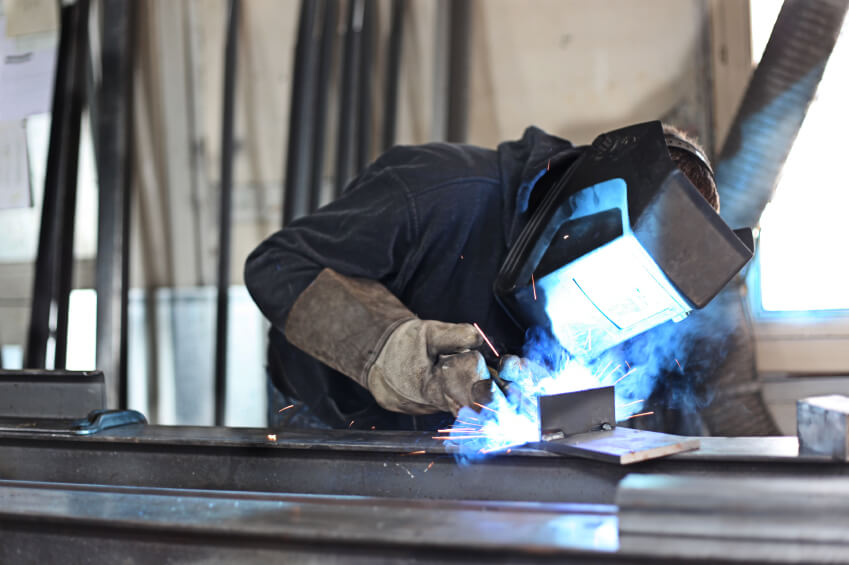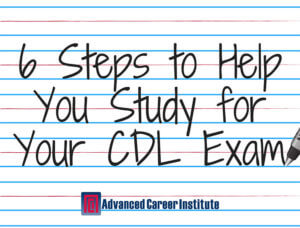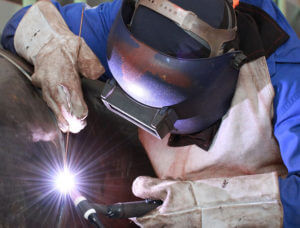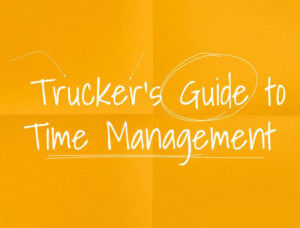Blog
Helpful Information About Potential Welding Careers & Trucking Jobs
-

Celebrating Father's Day with Your Trucking Dad
Finding the perfect gift for Father's Day can be a challenge. For those families that have a truck driver as a father, this task can be even more complicated. It can be difficult to come up with new ideas for every occasion or holiday. Most of their time is spent on the road so choosing something practical that he can use in his cab or while traveling is a good option. Here are a few gift ideas for the truck driving dad.XM Radio
Truck drivers spend the majority of their time on the road in their cabs. XM radio can be a great way to entertain while driving. There are hundreds of stations to choose from including music and talk radio. Subscriptions generally range from around $30 for a 6 month period.Sheet Set
Getting a good night's sleep is very important for a truck driver. A truck driver should be as comfortable as possible even when on the road. The beds in trucks are usually a twin or twin XL size. Sleeping bags and pillowcases are also great accessories to purchase with a sheet set.Bluetooth Headset
Talking on the phone while driving can be very dangerous and is also against the law in several states. Truck drivers need that connection with their loved ones and should be able to talk while driving. Purchasing a hands-free headset can solve that problem. They can stay connected while driving safely.Portable Mini Fridge
A mini fridge can be a great addition to a driver's truck. The mini fridge gives them the ability to pack options that are healthier and can also save them time. Look for a 12-volt option that is easy to use with a cigarette adapter.Compact Microwave
A small microwave can also eliminate the number of stops that a driver has to take. This can help them deliver their loads quickly. A small microwave can also help them eat healthier. They can heat up vegetables, pasta, and many low-calorie frozen meals whenever they chose to. Remember this, if your dad is not yet a truck driver, acquire an application from the Advanced Career Institute as a gift. The best vote of confidence in his dream is to help him with that first step. This Father's Day celebrate your dad and let him know how much he means to you and your family. From all of us at Advanced Career Insitute, we wish you a Happy Father's Day. -

Get Quality Welding Training at ACI
Updated February, 2022 Welding jobs continue to increase year over year. As America’s welding industry grows, professionally trained welders are in demand more than ever. New construction, transportation projects, and pipelines for natural gas all contribute to the growing demand for professional welders.Welder Job Statistics
The U.S. Bureau of Labor Statistics reports that the need for welders is expected to grow by 8 percent by 2030. Welding growing as fast as all other professions in America with an average of 50,000 new jobs opening each year. The growing demand for welders has caused many job seekers to consider a career in welding for a few reasons. The welding industry offers higher than average starting pay, good benefits, and a bright future.What Welding Employers Look For
However, today’s welders need professional training in relevant practices and new welding technologies. Although the demand for welders is high, employers are still looking for welders with training from a respected school. They want to recruit students who have relevant welder training and experience using appropriate safety practices. Employers struggle to find properly trained professionals who understand how to work in today’s modern welding field. The National Association of Manufacturers (NAM) reports that 4 million new manufacturing jobs will be needed by 2030. This is due to a lack of proper skill and training in the welding industry and needing to decrease the average age of the industry. Luckily, this gives students at Advanced Career Institute an advantage. Additionally, The American Welding Society has predicted a deficit of 400,000 welders by 2024. That shortage is also true for shale gas manufacturers who are struggling to find professional welders with experience in pipefitting. The current shortage of quality welders means there are many job openings across the country. The starting pay for a professionally trained welder is around $45,000+ per year and experienced welders are earning upwards of $70,000+ per year. Interested in taking advantage of this opportunity? Learn more about our quality welder training program at Advanced Career Institute.Get Quality Welder Training at ACI
The Advanced Career Institute’s welding program is designed to prepare each student to obtain American Welding Society Certification. Students will also receive training in a variety of skills including construction site safety, blueprint and site plan reading, principles of metallurgy, construction math, and welding tool usage. From the shale gas sector to transportation infrastructure construction, professionally trained welders are needed all across the country. This career field offers jobseekers the chance to work in one of the nation’s fastest-growing professions. Start your new career today! Contact us to learn more. -

A Study Guide for Passing the CDL Test
Like any test, the Commercial Driving License (CDL) exam requires study and preparation because you will be tested on a lot of information. However, simply trying to memorize the entire CDL manual, which is typically around 180 pages long, is not the best way to prepare for the exam. Instead of wasting countless hours becoming tired and frustrated, study smart. Here are six study steps to help you prepare for and pass your CDL exam.Plan Ahead
Cramming a day or two before your CDL exam will not yield the best exam results. Besides causing sleep deprivation and trouble focusing, you won't retain important material that you need to understand as a responsible, safe driver. Pick a day to take your exam and start studying ahead of time so that you are fully prepared. If you are new to the exam, consider taking a training course online or in-person, which some states require. There are a number of programs you can choose from, so shop around for a course that works best for you. For example, at Advanced Career Institute, we offer Class A and Class B CDL training courses as well as CDL refresher courses for experienced drivers in California.Find Out What to Study
Are you wondering what exactly is on the CDL exam? Take a look at the DMV CDL study guide, which breaks down the test section by section in terms of the CDL manual. For a detailed, free, comprehensive guide, check out Study Guide Zone's CDL Test Study Guide. No matter what kind of CDL you are studying for, you'll have to know General Knowledge. Based on the type of CDL you wish to receive, you'll have to study specific topics, such as School Buses and Hazardous Materials.Take a Diagnostic Exam
It doesn't make sense to study what you already know. To find out what you do know and what you don't know, take a diagnostic exam. Driving-tests.org allows you to select your state and take a free, full-length general knowledge practice exam. Taking a diagnostic test will also help you get a feel for the exam so you'll be better prepared on exam day.Collect Your Study Materials
Make sure that you have everything you need to help you study. The most important tool will be the CDL manual, which you can download on your state's DMV website. You can also pick up a hard copy from your local DMV. The DMV endorses DMVCheatSheets.com, which provides a number of cheat sheets with a money-back guarantee if you do not pass your CDL exam after using the service. Consider purchasing a CDL test prep book, downloading an app from the Apple App or Google Play stores, and saving helpful websites with study guides and other prep tools.Study What You Don't Know in an Effective Environment
Using the results from your diagnostic exam, review the material that you don't know in the CDL manual. If you have purchased a test prep book, you can find the sections that you need to review using the table of contents. When studying, make sure you have a distraction-free space. Remember to take breaks and have some snacks nearby to refuel.Test Your Knowledge
After reviewing what you need to from the CDL manual, test your knowledge through flashcards and additional practice questions. Union Test Prep offers free CDL flashcards and practice tests based on specific subjects. There are a number of apps that can also help you study on the go. You can also ask your family and friends to help quiz you on the sections that you have trouble with. Using these tips and tricks can help you pass your CDL exam. Of course with your training at Advanced Career Insitute, we will help prepare you for this exam by going over every little detail. The goal is, by the time you go in for the test, all questions should be second nature to you. For more information about passing your California CDL exam and our training options, contact us today! -

4 Reason to Begin Your Welding Career
April is National Welding Month, and there has never been a better time to consider a career in this industry. Welders play an integral role in such areas as retail infrastructure and home improvement. As automation integrates with the welding field, it creates more opportunity for specialization. The good news is employers are looking for qualified Welding professionals! If you are thinking about changing your career, there are many reasons to investigate and research the welding industry. Let's take a look at 4 undeniable reasons to become a welder:1. Welding is used in many industries
You can find welders in the aerospace, construction, mining, automobile, and shipbuilding industries. As the global economy continues to grow, Welders can rest assured they will have job security and more opportunities.2. Automation will continue to integrate with the Welding field
As technology is used more widely than ever before to improve and streamline processes, Welders will have additional specialization openings. Individuals who transition to this professional field will learn the latest methods of mechanical welding. The materials and processes used will continue to evolve, making it an exciting time to get involved.3. No degree is required to enter the job market
With the rising cost of tuition at colleges and universities nationwide, a career in welding provides students with a greater return on investment. Trainees are ready to work in their field after only 480 training hours. This means having the ability to earn a competitive wage faster than 2-4 years with a college degree.4. The California Welder Program is completed in just 24-weeks
Students are prepared to transition to an entry-level welding position, where they will gain additional practical experience. Skills obtained through training are applied to a variety of growing industries that provide personal and professional growth. Advanced Career Institute offers their training program at two campuses--Visalia and Fresno. It doesn't have to be National Welding Month for you to take control of your career. If you love to design, create and fix things with a variety of materials, Welding may be the perfect next step for you. Contact Advanced Career Institute to begin your career in welding. -

Tips to Staying on Schedule While on the Road
Now that you have your CDL license and an exciting new career on the road, you will want to learn some time management techniques so that you can do your best job and be as safe and efficient as possible. Like any job, there is a learning curve to driving trucks. You will learn little tricks as you gain more experience, but here are a few time-saving tips that may help you out quite a bit as you hit the road!Traffic
Traffic is out of your control, but you can plan your route with the intention of avoiding the biggest cities and roads when they will be the most densely populated and traffic will be at it's worst. We all know that rush hour is the worst time to be driving in and around any large city. The best thing you can do to manage your time is to work your routes around this knowledge and make sure you aren't driving into LA, Houston, Atlanta, etc. during the peak traffic hours. This will save you a lot of time sitting in your truck.Load and Unload
A part of route planning is loading and unloading your cargo. If you can plan your routes with the intention of dropping off and loading your cargo as early as possible, you will save time and make your customers very very happy. The more consistent you are in pleasing customers, suppliers, dispatchers in this way, the more likely they are to give you better jobs in the future and it can lead to more money earned for you.Rest
Just because you are trying to work ahead of schedule does not mean that you get to forget about rest. You need to sleep every night in order to provide the best service and be the most efficient driver that you can be. The key to time management is planning. Plan your sleep times and rest periods as stringently as you plan your routes and your load and unload times. Planning is the key to time management, there are apps like Apple's calendar on iOS and Google calendars that are great organizers. These apps will buzz and make a noise like an alarm clock if you set them. Ultimately, you need to be in control of yourself. Calendar tools will help you stay organized and remind you when to stop resting or driving etc, but at the end of the day, you will be as organized as you want to be. Planning and organization are the cornerstones of time management. What time management tips do you have for truck drivers? At Advanced Career Institute, we don't just prepare students for CDL Training, but all aspects of trucking. Interested in entering this in-demand industry? Contact us to learn more about our training programs. -

CDL Related Jobs that aren't Over the Road
Many people begin pursuing a Commercial Driver’s License with the intent of becoming over-the-road truck drivers. Why not? It’s a common profession that is in high demand. There are plenty of jobs available! However, it’s not the only show in town. There are also non-trucking jobs you can get with a CDL. A CDL is a surprisingly versatile document, and while driving is almost always on the docket if you are getting a CDL, driving a big rig is far from the only occupation you can hope to pursue. Indeed, there are many vehicles you can operate and an equal number of potential employers who will look at hiring you if you depend on your level of experience. These jobs can each bring their nuances that offer commercial drivers a surprising level of diversity to their daily work experience.Highway Maintenance Technician:
Highway construction and repair projects often require the use of large vehicles, which means people are needed to drive those vehicles. Everything from dump trucks and skid steers to concrete mixers and paint trucks are used for highway maintenance, so if you want this job, you’d better put your work boots on. Often a Class B CDL is the minimum requirement for this position.Engineering Equipment Operator:
As an Engineering Equipment Operator, you will operate a variety of heavy machinery, including dump trucks and trash compactors, and will help prepare the terrain for upcoming construction projects. Depending on where in the country you are working and the geographical structures around you, and the nature of the business that employs you, you can work in any number of environments up to and including bodies of water.Construction Equipment Operator:
Few fields have as diverse a set of big vehicles as the construction industry. Skid steers, dump trucks, knuckle boom loaders, track hoes, loaders, flatbeds, bush hogs, cranes, and steamrollers. You name it, the construction guys use it. All of them require an operator who possesses a CDL.Tractor Trailer Technician:
While not required in most states, having a CDL is a big plus for most tractor-trailer technicians. It stands to reason that it is better to be qualified to drive a vehicle you are working on. Tractor-trailer technicians don’t haul loads with their trucks, but they certainly are good at fixing them. Maintaining fleets of trucks is a big job that is usually performed by a team of semi-truck techs, and is a vital part of the trucking industry.Terminal Manager:
Another job that doesn’t require most workers to have a CDL, but it greatly helps, is a Terminal Manager. Terminal Managers are the field managers of a trucking company and are responsible for organizing, planning, and implementing transportation solutions. In other words, they manage trucking company workloads.Delivery Driver:
Delivery drivers don’t have the prodigious time on the road that perhaps an over-the-road hauler does, but the two occupations are close cousins. Businesses as diverse as furniture companies and medical equipment suppliers often provide delivery services and often employ workers with commercial driver’s licenses. Interested in one of these non-trucking jobs you can get with a CDL? Advanced Career Institute can help you start your career in trucking. Check out our programs and the opportunities available to you.

